APM software
Updated: July 30, 2023
Application Performance Management (APM) software is a crucial tool that enables businesses to monitor and optimize the performance of their applications and IT infrastructure. APM software provides real-time insights into the end-to-end performance of applications, from the user interface to the backend systems. It helps identify and diagnose performance bottlenecks, such as slow response times, errors, and resource utilization, allowing businesses to proactively address issues and deliver a smooth user experience. APM software typically offers features like application monitoring, transaction tracing, code-level diagnostics, and performance analytics, providing comprehensive visibility into application performance. By leveraging APM software, businesses can improve application reliability, accelerate problem resolution, and enhance overall customer satisfaction, ensuring that their applications operate at peak efficiency to support their critical operations and deliver a competitive advantage.
See also: Top 10 IT Monitoring software
See also: Top 10 IT Monitoring software
2022. Groundcover lands $20M to help companies monitor app performance
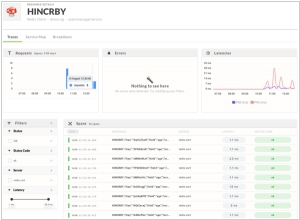
Groundcover, a platform dedicated to monitoring the performance of cloud applications, has successfully raised $20 million in a Series A funding round. While major companies have dominated the Application Performance Monitoring (APM) sector, the increasing volumes of data and complex technology stacks have driven up costs and made integration and maintenance challenging. Groundcover aims to revolutionize the domain of cloud-native application monitoring by utilizing eBPF (Extended Berkeley Packet Filter) technology. This innovative approach enables observability by tracing events across networks, infrastructure, services, and applications. Originally designed for running programs within isolated virtual machines, eBPF can now be leveraged to capture observability data with minimal installation requirements. Groundcover's competitors, such as Pixie, have also utilized eBPF for this purpose, highlighting its effectiveness in addressing monitoring needs in the industry.
2021. Lumigo raises $29M for its cloud-native application monitoring platform
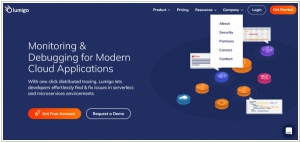
Lumigo, a platform specializing in cloud-native application monitoring and debugging, has recently secured $29 million in Series A funding. Originally focused on distributed tracing for serverless platforms like AWS' API Gateway, DynamoDB, S3, and Lambda, Lumigo has now expanded its SaaS service to encompass containers and virtual machines. By leveraging Lumigo's platform, businesses gain the ability to visualize the flow of data between services, comprehensively understanding every transaction within their network. This visibility empowers them to swiftly identify and resolve issues when data flow is disrupted. Lumigo offers a paid SaaS service, which includes a free tier, catering to the needs of various businesses. Additionally, the company provides a free command-line tool for analyzing and optimizing services built on AWS Lambda and Kinesis.
2021. Cisco beefing up app monitoring portfolio with acquisition of Epsagon
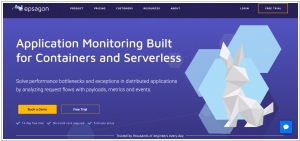
Cisco is set to acquire the Israeli applications-monitoring startup Epsagon for $500 million. This strategic move allows Cisco to enhance its applications-monitoring portfolio with a more contemporary focus on microservices. The acquisition adds to Cisco's existing high-profile app-monitoring deals, such as the acquisition of AppDynamics for $3.7 billion in 2018 and ThousandEyes for $1 billion last year. With the addition of Epsagon, Cisco gains advanced capabilities to monitor modern applications built with containers and Kubernetes. Epsagon's solution is specifically designed to monitor these types of workloads, providing users with tracing and metrics, which can be challenging due to the transient nature of containers.
2021. ServiceNow leaps into applications performance monitoring with Lightstep acquisition
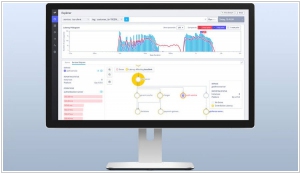
ServiceNow has recently completed the acquisition of Lightstep, a startup specializing in applications performance monitoring. By incorporating Lightstep's capabilities, ServiceNow aims to enhance its IT operations offerings. With Lightstep on board, ServiceNow will empower its customers with advanced application performance monitoring capabilities, enabling them to proactively identify and address potential issues before they escalate into major problems that could disrupt websites or applications. In the competitive landscape of application performance monitoring, Lightstep joins the ranks of companies like Datadog, New Relic, and AppDynamics (acquired by Cisco in 2017). The strategic acquisition aligns with ServiceNow's commitment to providing comprehensive solutions for optimizing IT operations.
2021. App monitoring platform Sentry gets $60M
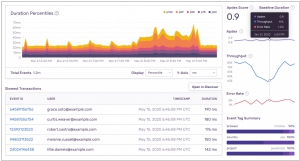
Application performance monitoring startup Sentry has achieved unicorn status after securing a $60 million Series D funding round. Sentry's software plays a vital role in monitoring applications for potential problems, enabling developers to identify bugs before they lead to service disruptions, downtime, and user dissatisfaction. Although Sentry's products are utilized across various industries, it is experiencing significant growth in the gaming and streaming media sectors. Additionally, there is emerging demand from industries that are undergoing digital transformation in their infrastructure and services, such as finance, commerce, and healthcare.
2020. IBM is acquiring APM startup Instana as for its hybrid cloud platform
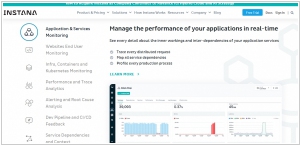
As IBM shifts its focus towards becoming a hybrid cloud management company, it has recently acquired Instana, a startup specializing in applications performance management with a cloud-native approach. This acquisition aligns with IBM's strategy as it enables the enhancement of its internal management tools, specifically in monitoring containerized environments running on Kubernetes. By integrating Instana into its portfolio, IBM aims to provide customers with effective management solutions for complex hybrid and multi-cloud environments.
2020. Gartner named 15 top application performance monitoring vendors
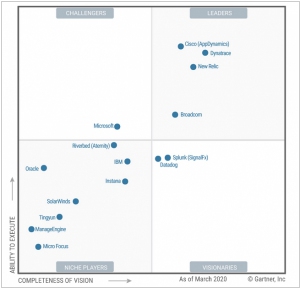
According to Gartner, Application Performance Monitoring (APM) vendors are enhancing their capabilities to forecast the impact of application performance on digital business, while also offering greater support for cloud infrastructure. The COVID-19 pandemic has posed challenges for enterprises in maintaining the performance of business-critical applications and ensuring a satisfactory digital experience for their users. Gartner suggests that addressing these issues necessitates the utilization of digital experience monitoring (DEM) products, several of which are featured in Gartner's Magic Quadrant. These solutions can be deployed either at the locations where employees are situated or as cloud-based APM offerings, enabling comprehensive visibility and the achievement of performance objectives.
2019. Frontend Monitoring service LogRocket lands $15M
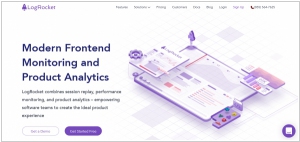
LogRocket, a startup specializing in efficient identification and resolution of website and app errors, has successfully secured $15 million in Series B funding. The company has also unveiled a new tool named LogRocket Metrics, designed to assist developers in gaining insights into the prevalence of specific issues. It is widely recognized that users tend to become impatient when encountering malfunctions in apps or websites, which can potentially lead to customer loss. By leveraging the capabilities of LogRocket Metrics, developers can conduct comprehensive searches across their customer base to determine the frequency and impact of a given problem. This information helps assess its effect on conversion rates, identify the number of affected individuals, and determine the specific users impacted.
2018. Google Cloud adds new applications performance monitoring tool
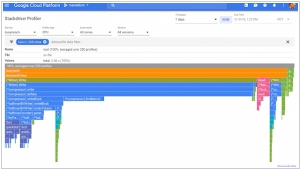
Google has introduced a significant addition for developers working on applications within the Google Cloud Platform. They now have access to a comprehensive suite of application performance management tools known as Stackdriver APM. This suite empowers developers to directly track and address issues within the applications they have built, eliminating the need to rely solely on operations teams. The underlying idea is that developers, being intimately familiar with the code, are best positioned to comprehend the signals emanating from it. Stackdriver APM consists of three primary tools: Profiler, Trace, and Debugger. While Trace and Debugger were already available, the integration of Profiler allows all three tools to seamlessly collaborate in identifying, monitoring, and resolving code-related issues.

